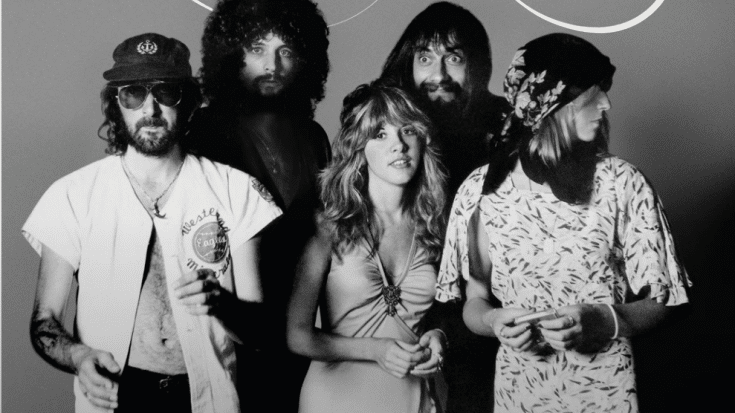8 Rock Albums Known for Fights During Recording but Turned Out Great

via Fleetwood Mac / YouTube
Music, much like any form of art, often emerges from the depths of emotion, conflict, and the complexities of the human spirit. Sometimes, the creation of unforgettable albums involved clashing egos, differing visions, and outright fights. Interestingly, these tensions have led to the production of some of the most iconic albums in rock history. Below, we delve into eight rock albums that, despite—or perhaps because of—the battles behind the scenes, turned out to be masterpieces.
The Beatles – “The White Album” (1968)
The Beatles’ “The White Album” showcases a band at the peak of creativity while simultaneously on the brink of collapse. The recording sessions were marked by tension and disagreements among the band members, with each Beatle often recording their parts separately. Yet, this isolation led to a double album filled with a diverse range of songs that pushed the boundaries of rock music. From the plaintive “While My Guitar Gently Weeps” to the avant-garde “Revolution 9,” the album is a testament to how creative differences can result in groundbreaking work.
Fleetwood Mac – “Rumours” (1977)
Fleetwood Mac’s “Rumours” is often hailed as one of the greatest albums ever made, born from a period of intense personal turmoil within the band. Relationships were unraveling; Lindsey Buckingham and Stevie Nicks were ending their long-standing relationship, Christine and John McVie were going through a divorce, and Mick Fleetwood was facing his own marital issues. The raw emotion and heartbreak fueled the album’s creation, with songs like “Go Your Own Way” and “Dreams” reflecting the personal conflicts and deep connections between band members. This emotional honesty struck a chord with listeners, making “Rumours” an enduring classic.
Guns N’ Roses – “Appetite for Destruction” (1987)
“Appetite for Destruction” by Guns N’ Roses erupted onto the rock scene with the force of a supernova. The making of this album was anything but smooth, with the band members dealing with personal issues and substance abuse. Yet, amidst this chaos, they managed to channel their raw energy and anger into music that was both aggressive and deeply melodic. Songs like “Welcome to the Jungle” and “Sweet Child o’ Mine” became anthems of a generation, defining the rock sound of the late ’80s.
Pink Floyd – “The Wall” (1979)
” The Wall”, conceptualized by Roger Waters, is a rock opera that delves into themes of abandonment, isolation, and the pressures of fame. The recording sessions were fraught with tension, particularly between Waters and Richard Wright, leading to Wright’s temporary departure from the band. Despite—or perhaps because of—these challenges, the album emerged as one of Pink Floyd’s most ambitious and personal projects. It gave us classics such as “Comfortably Numb” and “Another Brick in the Wall, Pt. 2”, and remains a powerful exploration of the human condition.
The Police – “Synchronicity” (1983)
During the making of “Synchronicity”, The Police were barely on speaking terms. The personal conflicts, however, did not stop them from producing their most successful album. The hit “Every Breath You Take” exemplifies the band’s ability to blend catchy melodies with deep, often dark themes. Despite the internal struggles, “Synchronicity” showcases the band at their musical peak, combining elements of rock, reggae, and jazz into a cohesive and compelling whole.
Oasis – “(What’s the Story) Morning Glory?” (1995)
The Gallagher brothers of Oasis are almost as famous for their feuds as for their music. The making of “(What’s the Story) Morning Glory?” was no exception, with arguments and disagreements being a common occurrence. However, the album captured the Britpop era’s spirit like no other, with tracks like “Wonderwall” and “Don’t Look Back in Anger” becoming anthems of the 90s. The tumultuous relationship between the Gallaghers, in a way, fueled the creative fire that led to this landmark album.
The Rolling Stones – “Exile on Main St.” (1972)
“Exile on Main St.” was recorded under less-than-ideal conditions in a villa in the south of France. The Rolling Stones were grappling with drug problems and tax exile status. Despite, or perhaps because of these hardships, they created an album that encapsulated the essence of rock and roll. The raw sound, influenced by blues, country, and gospel, was initially met with mixed reviews but has since been celebrated as one of the greatest albums in rock history.
The Eagles – “Hotel California” (1976)
“Hotel California” is one of The Eagles’ most iconic albums, one that came to life amidst a backdrop of personal and professional tension within the band. The creation process was arduous, with band members Don Henley and Glenn Frey driving the group to refine every song meticulously, leading to frustration and friction. Despite this, or perhaps because of the relentless pursuit of perfection, the album became a defining moment in the band’s career. Songs like the title track “Hotel California” and “Life in the Fast Lane” captured the zeitgeist of the 1970s, weaving intricate storytelling with impeccable musicianship. The album’s enduring appeal lies in its ability to fuse profound lyrics with unforgettable melodies, a combination that has made it a cornerstone of classic rock.












